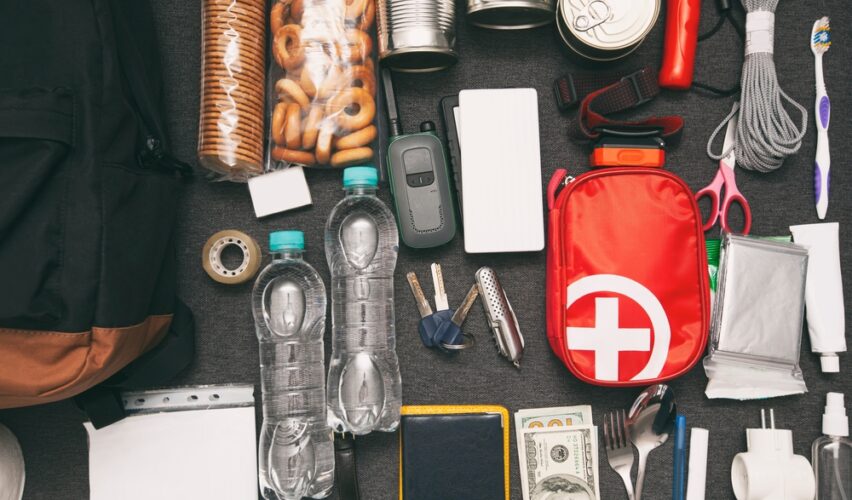From wildfires to severe weather, more and more parts of the country find themselves under the threat of natural disasters. Even an emergency on a smaller scale, like a house fire or ruptured pipe, can result in you needing to evacuate your home quickly. In the heat of the moment, there are probably several crucial items that you’ll leave behind. That’s why it’s important to keep these items together in a portable bag or container so you can grab and go when the time comes.
What to Include
- Have copies of your ID, such as birth certificates, passports, and driver’s license so that you can prove your identity.
- Keep a short, up-to-date video of your residence and its contents. This is a valuable tool if you need to file a claim with your insurance company.
- Having cash on hand is recommended as a widespread loss of power would render ATM machines and credit cards temporarily useless. You may also want to write down your account numbers in case you can’t access your bank online.
- Most of your emergency contacts are in your phone and if you happen to lose that, what are the chances you’ll remember the numbers? It’s good to have a list to which you can refer.
- Any pertinent medical information like allergies, pre-existing conditions, and prescriptions should be documented.
- Some non-perishable food items, such as granola bars, are good to include as they may hold you over until you’re able to get a proper meal.
Keep it Safe
A fireproof bag or safe is an ideal place to store your essential emergency items. It’s also good to keep them in an elevated spot to avoid any damage from flooding. While some people opt to keep vital documents in a safe deposit box, that might not be a practical solution. If you’re facing a natural disaster, chances are that your bank is as well and might not be open.
Storing data via an encrypted drive or cloud-based storage also provides peace of mind should your computer be lost or damaged. Don’t just set it and forget it. You need to check your emergency bag every so often to ensure it’s up to date.
If we’re lucky, we’ll never face a situation that causes us to have to evacuate our home. But should the unthinkable happen it’s better to be emergency-ready. A bit of preparation now can save you a lot of time, effort, and stress in the future.























